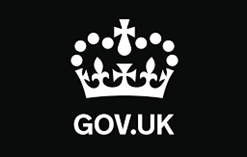Over the next year, DASA will release a series of challenge “drops” to find and fund solutions to major space hurdles, with up to £2m in funding available.
The space domain, which includes satellites and space-based services, is vital to modern life, enabling a range of civilian and military activities. Any form of disturbance to UK space capabilities, whether that is natural or intentional, can cause a severe disruption to UK prosperity.
To promote space resilience and operational effectiveness, the Defence and Security Accelerator (DASA) is pleased to announce that we have teamed up with the Defence Science and Technology Laboratory (Dstl) Space Programme to launch the Space to Innovate Campaign.
The Space to Innovate Campaign seeks proposals that can maintain the UK’s freedom of action in the space domain by developing future space technologies that enhance and protect space military and civil potential.
The campaign format is unique from other DASA competitions, and comprises space-related challenges that will be released in “drops” throughout 2021 and 2022. These challenge drops follow the output of previous DASA space-themed competitions including Space to Innovate Phase 1 and the International Space Pitch Day.
The first challenge drop, called the “Alpha challenge drop” in the Space to Innovate Campaign is now open for proposals! This challenge drop focuses on two challenges:
- Challenge 1: Visualisation tools to enable space operators to exploit information gathered from multiple data sources
- Challenge 2: Novel methods for characterising objects in space and their intent
Think you have the solution?
Check out the full competition document and submit your idea.
When does the Alpha challenge drop begin and how much funding is available?
The Alpha challenge drop is now open and closes for proposals on 4 August 2021. The value of individual contracts offered throughout the entire Space to Innovate Campaign will be from £125k to £400k, with durations of the contracts expected to be from 6 months to 18 months. The amount of funding available for the entire Space to Innovate Campaign is expected to be £2m, with the campaign ending on 31 March 2023.
The second Bravo challenge drop will address challenges focusing on ISR (Intelligence, Surveillance, and Reconnaissance) and SSA (Space Situational Awareness).
What are the benefits of the DASA campaign and challenge drop format?
This campaign approach enables greater variation of contract values and durations to be issued by DASA, which provides larger and longer contracts for more mature technologies, whilst also enabling less mature innovations to be explored.
Overall, the benefit of the campaign and drop concept is that it enables a cycle of new innovative ideas to be contracted as well as maturing existing technologies to a higher level.
Alpha drop challenges
Challenge 1: Visualisation tools to enable space operators to exploit information gathered from multiple data sources
For challenge 1, DASA is looking for novel solutions that could help to address issues such as:
- enhancing the situational awareness around an object
- understanding and monitoring manoeuvres and changes of objects in orbit
- streamlining ingestion issues with multiple data sources and different naming conventions
- using machine learning to enhance our understanding and interrogation of the data presented and make sense of results
- visualising uncertainty in data
Challenge 2: Novel methods for characterising objects in space and their intent
For challenge 2, DASA is looking for novel solutions that could help to address issues such as:
- detecting changes of state and predicting future changes
- exploiting non-traditional sensor configurations including bi- or multi-static configurations and the repurposing of existing facilities
- technologies that allow resolution of individual features on an observed satellite, inferring information regarding payloads
- observing the interaction and cooperation between satellites in formation in low Earth orbit (LEO) or geostationary Earth orbit (GEO)
- satellite overflight warning of Earth observation missions primarily in LEO
- asset protection for high value satellites operating in GEO
For more information, read the full competition document.
Have the solution? Submit a proposal now!
The closing date for proposals for the Alpha challenge drop is 4 August 2021. Click here for the full document and submit your idea!

